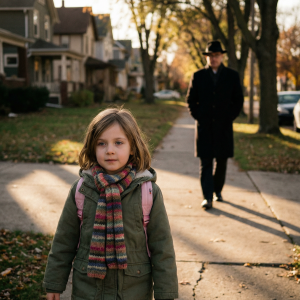The courtroom fell silent as seventeen-year-old Ryan Cooper shuffled through the doors, his posture radiating indifference. Buried deep in his sweatshirt with arms crossed defensively, he appeared utterly disconnected from the gravity of his situation. The packed gallery—filled with community members and those he’d wronged—watched nervously as proceedings commenced. Everyone sensed this wouldn’t be an ordinary hearing.
Judge Whitmore’s invitation for final remarks before sentencing should have been Ryan’s opportunity for redemption. Instead, the teenager approached the microphone with startling arrogance. Rather than expressing any regret, he shrugged off the charges as inconsequential, speaking as if the legal system was merely an inconvenience. His cavalier response sent shockwaves through the courtroom. Even his legal counsel shifted uncomfortably, recognizing how this bravado might seal his client’s fate.
Suddenly, a shaky yet determined voice pierced the stunned quiet. Karen Cooper rose from her seat among the spectators, her expression a heartbreaking mixture of anguish and determination. For countless months, she’d stood by her son through every misstep, believing her unwavering support might guide him toward better choices. But witnessing his callous dismissal of responsibility shattered her last illusion. Through streaming tears, she addressed the court with brutal honesty—she could no longer enable his behavior by shielding him from consequences. She begged for meaningful intervention that might finally reach her son, regardless of personal cost.
Her raw vulnerability and moral courage profoundly impacted Judge Whitmore, who crafted a rehabilitative sentence: twelve months in juvenile intervention programming combining therapy, academic support, and community engagement. As officers prepared to escort Ryan away, his mother reached out, touching his arm softly while saying, “My love for you is unconditional, but you must own your choices now.” That instant marked Ryan’s first glimpse of real accountability—understanding that genuine responsibility extends beyond legal obligations to encompass the faith of those who love us most.





